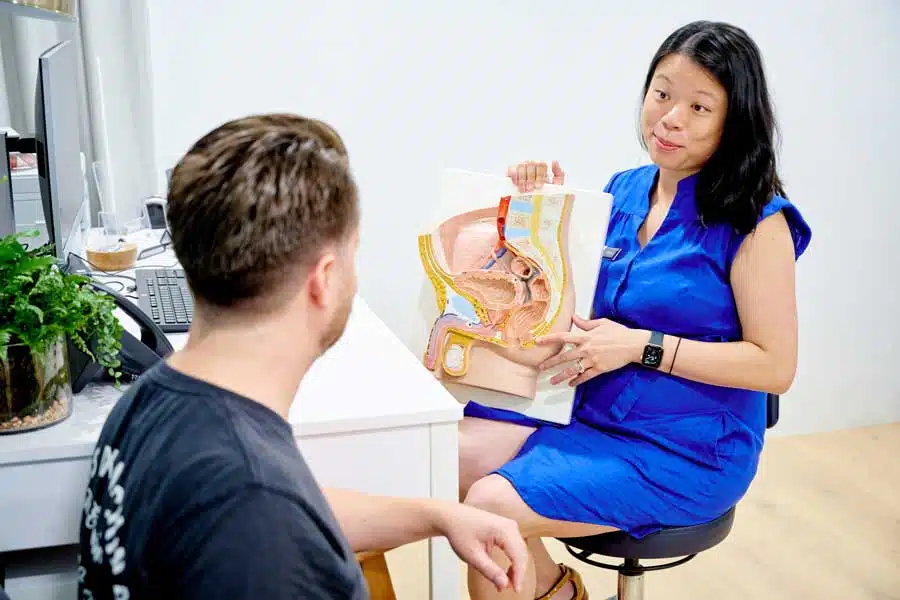With Felicity de Blic, Physiotherapist & Yoga Teacher
It’s easy to feel like life is always getting busier. It can leave us feeling tired, but wired, and the good quality sleep that helps us maintain good physical and mental health can be hard to come by. If you struggle to fall asleep, or wake in the night and can’t get back to sleep, you might benefit from thinking about what we call “Sleep Hygiene”. Evidence shows that restorative sleep can be optimised by following some simple ideas, and even implementing a few of them that work with your lifestyle can lead to big improvements.
1. Maintain a Regular Bedtime and Wake Time.
The body’s rhythms respond to routine, so if you can, hold your waketime and wind-down / sleep time as consistent as you can.
2. Establish a Consistent, Relaxing Bedtime Routine.
Taking a warm bath or shower helps to drop the body’s core temperature, which helps us slip into sleep. Moisturise and massage your skin, gently stretch or perform a few calming restorative yoga poses, practice slow smooth diaphragmatic breathing with an extended exhale, read a book, or do try a 10-minute meditation or Yoga Nidra track, to help you turn off the mind and get into your body. Support your nervous system to turn up its ‘rest and digest’ response with a predictable and pleasant routine, to help drop into sleep more effortlessly.
3. Regular Exercise
Enjoy Some Regular Exercise, but Make Sure You Stop Around 2 Hours Before Bed.
4. Lower the Lights in the Evenings.
Try to turn off overhead lights and instead turn on lamps and soft lighting in the evening. Have you ever gone camping and fallen asleep easily? Our physiology loves evening darkness and only campfire / candle light style lighting to help boost our natural melatonin levels, a hormone needed to help us drift off to sleep.
5. Ban Electronics from the Bedroom
Leave the ipad and phone somewhere else. Buy an old-fashioned alarm clock so you are not tempted to use your phone.
6. Ditch Screens 2 Hours Before Bedtime.
The lighting plays havoc with the body’s release of melatonin that we need to help us drift off to sleep. If you have housemates or a partner has the TV blasting into the evening, try using headphones or creating your own calming space to wind down in.
7. The Bedroom is For Rest & Sleeping.
Make the Bedroom a Place for Sleep and Relaxing. Ban Working or Screens!
8. Finish Eating at Least 2-3 Hours Before Bed.
Get your digestion done with, so that the body can cool itself down at sleep time.
9. Rethink Daytime Napping Even When You are Tired.
You want enough ‘sleep pressure’ to help you nod off at your ideal time. If you have to, take a short 20-minute nap late morning.
10. Daylight and Dusk Help to set our Body Clock for Sleep.
Get outside or sit by a window and get sunlight in your eyes at your ideal wake up time. This will help you wake up for the day, but also help to set your body clock to be ready for sleep at a decent hour that evening. Get some fresh air and sunlight in the afternoons. If you can, let your eyes observe the sun setting and the evening darkening, to signal our nervous system that it’s time to wind down.
11. Manage Stress.
When our stress hormone – cortisol – is high, our production of melatonin is inhibited. Imagine a stressed out animal in the forest – it’s no time to fall asleep! It needs to stay active and awake to find shelter and safety. Find what works for you – moving your body, breathwork, meditation, relaxing with friends – and know that turning up feelings of relaxation and safety, is an important part of letting our physiology know that it’s OK to fall asleep.
12. Caffeine
This is different for each individual, but research has shown even those who drink caffeine in the evenings and don’t have trouble falling asleep, actually have poorer sleep quality in those first few hours. Caffeine has a half-life of around 6 hours. So if you have a double shot latte at 3pm, it’s a bit like drinking a single shot at 9pm… Experiment with your caffeine intake and find what supports your sleep the best. However a helpful rule of thumb can be to ditch caffeine after midday.
13. Alcohol
Despite the sedative effects of alcohol that can help us feel sleepy, it can actually play havoc with our sleep quality, especially in the second half of the night. Alcohol intake also increases our risk for insomnia and sleep apnoea. If waking in the second half of the night, or waking unrefreshed is an issue for you, experiment with decreasing alcohol intake and see how it affects you.
14. Night Time Waking Routines
If you do wake at night, instead of lying in bed getting caught up with thoughts about your lack of sleep, try a breathing practice, mindfulness or Yoga Nidra track to focus your attention and relax your body. If you prefer, you can get out of your bedroom and try this seated in a darkened room, until you are feeling sleepy enough to head back to bed. Try and avoid going on your phone, turning lights on, or exercises that might wake your system up more, making it harder to get a few more hours of restorative sleep before that alarm goes off!
So what could you tweak in your daily routine to support better sleep?

